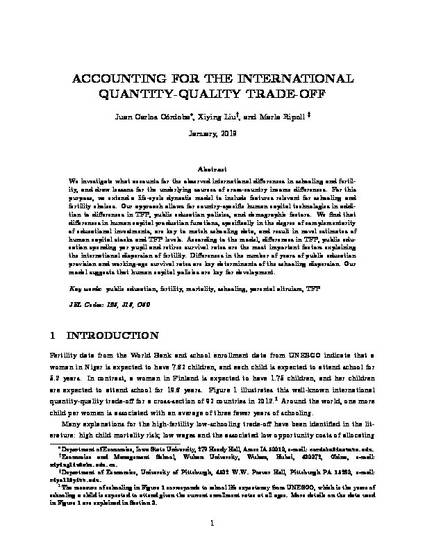
We investigate what accounts for the observed international differences in schooling and fertil- ity, and draw lessons for the underlying sources of cross-country income differences. For this purpose, we extend a life-cycle dynastic model to include features relevant for schooling and fertility choices. Our approach allows for country-specific human capital technologies in addi- tion to differences in TFP, public education policies, and demographic factors. We find that differences in human capital production functions, specifically in the degree of complementarity of educational investments, are key to match schooling data, and result in novel estimates of human capital stocks and TFP levels. According to the model, differences in TFP, public edu- cation spending per pupil and retiree survival rates are the most important factors explaining the international dispersion of fertility. Differences in the number of years of public education provision and working-age survival rates are key determinants of the schooling dispersion. Our model suggests that human capital policies are key for development.
Original Release Date: January 31, 2019
Available at: http://works.bepress.com/juancarlos-cordoba/18/
